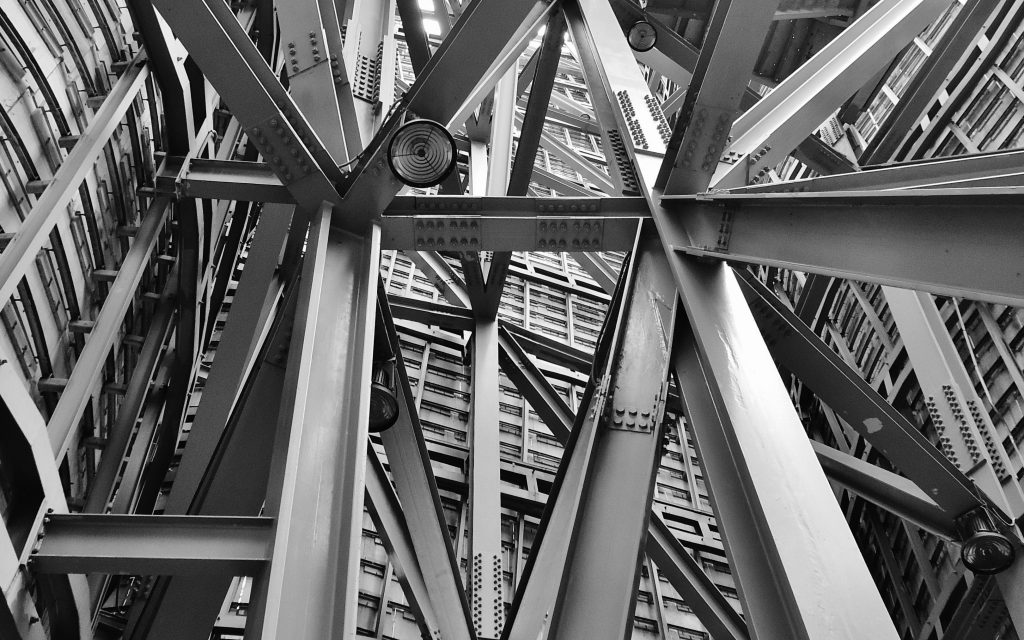
The Key Advantages of Steel Building
Construction has come a long way since the days of houses made from strips of wood called ‘wattle’. Bound together with a crude agent which acted as a form of concrete called ‘daub’, we’ve now progressed to much stronger materials.
While timber is undoubtedly still an evergreen material in building, its popularity has been overtaken by products like steel. You’ll mostly find buildings built from steel in an industrial setting, but its usage is now creeping into almost every corner of construction.
Even homes are now being made from this most durable of metals and it’s not hard to see why.
To build using steel or timber
When planning your construction project, one of the key decisions you will make is the materials you use. If it’s a direct choice between steel and other materials, it’s important to understand what steel will bring to your project.
For instance, using timber might initially be advantageous for you based on the upfront cost of materials. But if the timber rots over time, it could be costly for you – in terms of materials and time – to repair it.
With steel, there’s no need for considerations such as these. Replacements are unlikely and cheaper, if needed.
The appearance of steel buildings may have negative connotations based on the supposedly ‘ugly’ aesthetics of structures previously built with the metal.
But, in use, shielding behind facades or disguising in other ways can take place, because of its unique building application.
If you decide after your building is complete that you’d like to change how it looks, it will be difficult to do this with wood. Steel, on the other hand, is much more versatile and easier to remodel.

Main advantages of steel
There are many reasons for steel’s surge to the top of the shopping list for builders and construction site managers. Principally, if price of materials is an issue, it can cost you half as much as the same project using wood.
There’s also good news long after the building’s completion too. The price of land which houses a steel building appreciates over time, rather than depreciates.
But it’s not just cost which gives steel the edge over its natural counterpart. Steel also has several environmental factors going in its favour as well.
Environmental factors
– Building a house from steel does not involve felling trees in forests – and in years to come, steel can be recycled too
– Construction times are considerably shorter, so that’s less time spent by fewer machines using natural resources
There’s also a durability to steel with which wood simply can’t compete.
– Whereas wood warps and rots over time exposed to the elements, steel will stand strong
– Steel is easier to clean than wood, so it maintains its attractiveness for longer
– Steel won’t corrode, so it’s great for building the skeleton of a building on which everything else is built
– The smelting process of steel also adds another layer of strength to the finished product
– It does this by superheating and bonding the components of the metal, to make it even stronger
One of steel’s main plus points is one which should you cannot underestimate when creating any kind of building from scratch. It is incredibly strong, so the Big Bad Wolf would have a job blowing down a house made from it!
Steel’s versatility means that you can shape it to your exact specifications, while keeping all its positive characteristics. There is no chance of it weakening when aspects of your design may have to change.
It is a product which will look as good as it ever did for some time yet to come!
Make your choice
The decision of which material to use when completing your construction project rests with just one person – you.
Ultimately, however advantageous one material is over another, you will make your choice based on the factors that are right for you. Your budget, your access to materials, your future plans and so many more factors will all influence your decisions.
Think about how quickly you need the building and its impact on the environment. You will need to think of both the short-term and the long-term futures of your site and your finished building.
When you’re ready to start, there will be plenty of advice available to you from builders’ merchants and other sources.
Latest news

8th April 2025
First look at industry speakers for GEO Business 2025
GEO Business, the UK’s premier geospatial event, is set to return to ExCeL London on 4 – 5 June 2025, bringing together the brightest minds in the industry.
Posted in Articles, Building Industry Events, Building Industry News, Building Products & Structures, Building Services, Exhibitions and Conferences, Information Technology, Innovations & New Products, Restoration & Refurbishment, Retrofit & Renovation, Seminars
8th April 2025
Digital Construction Week 2025 announces first wave of industry-leading speakers
Digital Construction Week (DCW), the UK’s premier event for digital innovation in the built environment, is set to return to ExCeL London on 4 – 5 June 2025.
Posted in Articles, BIM, Infrastructure & CAD Software, Building Industry Events, Building Industry News, Building Products & Structures, Building Services, Building Systems, Civil Engineering, Exhibitions and Conferences, Hard Landscaping & Walkways, Health & Safety, Information Technology, Innovations & New Products, Landscaping, Retrofit & Renovation, Seminars
7th April 2025
Abloy UK provides bespoke access control solution for CPA Group’s Lanarkshire HQ
Abloy UK has supplied CPA Group with its PROTEC2 CLIQ solution to streamline access control and protect assets at its headquarters in Shotts, Lanarkshire.
Posted in Access Control & Door Entry Systems, Architectural Ironmongery, Articles, Building Industry News, Building Products & Structures, Building Services, Case Studies, Doors, Facility Management & Building Services, Health & Safety, Restoration & Refurbishment, Retrofit & Renovation, Security and Fire Protection
7th April 2025
ASSA ABLOY EMEIA: A new generation of reader is added to the Aperio digital access family
There is now a way to control access digitally, effectively and wire-free, thanks to ASSA ABLOY EMEIA…
Posted in Access Control & Door Entry Systems, Architectural Ironmongery, Articles, Building Industry News, Building Products & Structures, Building Services, Doors, Facility Management & Building Services, Health & Safety, Information Technology, Innovations & New Products, Posts, Retrofit & Renovation, Security and Fire Protection
 Sign up:
Sign up: